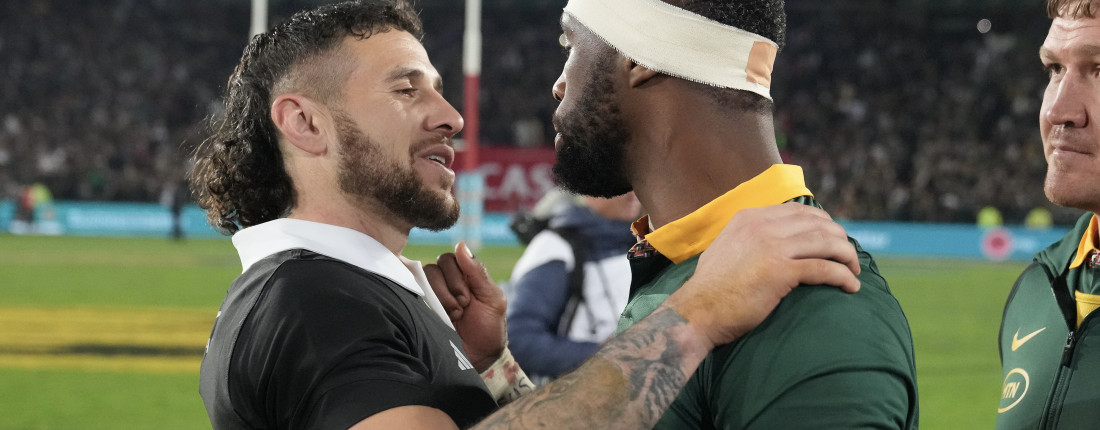
Traditionally known for their collision-style approach and chasing kicks from their halfbacks into the box, the World Champions have strategically evolved. They now play with more variation and utilise improved handling skills among their forwards. This shift has led them to claim their first Championship since the reduced format played in 2019 due to it being a Rugby World Cup year. They previously won the Tri Nations title in 2009.
The Springboks topped the clean breaks this year with 50, five more than the second-placed All Blacks.
That compared to 2022 when the Springboks managed only 32 clean breaks. That was down to carrying the ball more often this year. They carried the ball 730 times, compared to 485 two years earlier, but still fewer than the All Blacks' 756.
Their ability to beat defenders needs work, however. That statistic showed that the All Blacks topped the 2024 figures, with 165 defenders beaten, 26 more than South Africa. But that 139 was better than the 107 players they beat in 2022.
Wing Cheslin Kolbe proved the most elusive player in the competition, beating 21 defenders, making six clean breaks and 239 metres, yet he didn't play in all of the Springboks' games. Fellow Bok Jesse Kriel made the most clean breaks with eight, while All Black Will Jordan and Bok Kurt Lee Arendse made seven each.
Jordan made the most metres with 437, 123 more than Argentina fullback Santiago Carreras.
South Africa's changes have been built on their traditional forward power. They won the most scrum penalties, but their lineout was not as dominant, with their 86.9 per cent below the All Blacks' 88.8 per cent.
New Zealand proved the most dominant side, with offloads making 54 to Argentina's 40, while South Africa managed only 26.
All Blacks wing Eroni Clarke scored the most tries with six, No8 Ardie Savea made the most carries with 89, well ahead of Australia's Harry Wilson with 73. Wilson topped the tackle count with 86, two ahead of Savea.